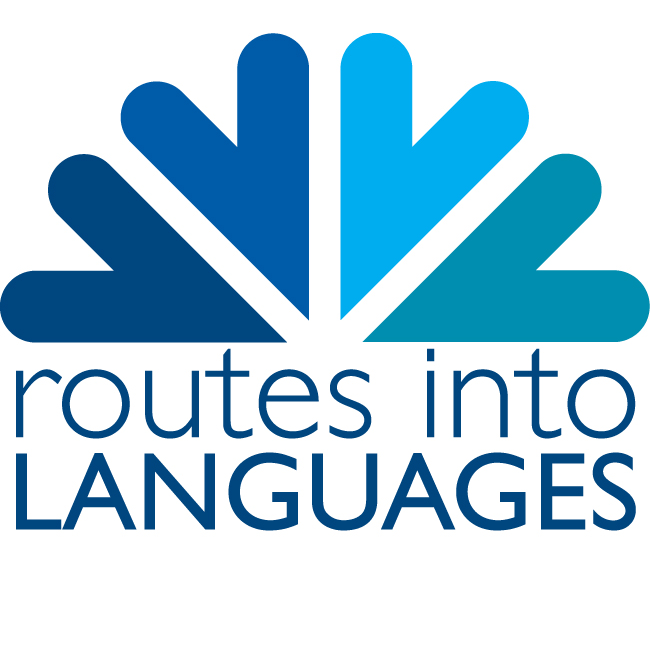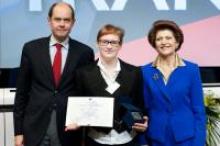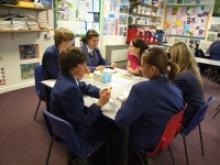Over 100 students, with 17 teachers, drawn from 15 schools across the Solent region, gathered at the University of Southampton on 22nd March to take part in the Solent-EBP Language challenge. Solent EBP (Solent Education and Business Partnership) organises the event on an annual basis, as part of a well-established programme that brings school students closer to the world of work.
The four members of each team, all in years 9 and 10 of their secondary education, had a range of tasks to perform using French, German or Spanish, culminating in a group presentation to a panel of judges who took the role of representatives from a foreign tour operator. The students made their pitch in the hope that their fictitious company would be commissioned to provide a tour package that would tempt cruise passengers to explore Southampton and the surrounding area at the start or end of their holiday.
Prior to the presentation, the students were busy devising their company logo, planning the itinerary, filling gaps in the information they had been given through simulated telephone conversations in the foreign language, and designing the poster they would use to support their presentation to the judges. Local volunteer business linguists were drawn from local solicitors (Blake Lapthorn), accountants (Price Waterhouse), as well as Southampton City Council, in total 10 businesses support the Challenge.
Events at the Challenge, which had been organised independently of the Routes Into Languages project, were filmed using funding allocated to the Southampton Solent University; as one of the outer circle in the southern Routes consortium, SSU had been invited to devote its budget to a version of the “Languages on Film” project first piloted at Brighton University.
Solent EBP works in partnership with CILT’s ‘Business Language Champion’ programme. Raz Hussain, the BLC South East Regional Manager, felt that a film was an important ingredient in documenting, celebrating and promoting the students’ achievements to potential future business sponsors. The Routes network was thus able to complement established work undertaken by a different set of partners in a remarkably fruitful way, making good use of links that had already arisen between local schools, businesses, organisations and the city’s two universities.
Southampton Solent University was represented at the event by members of the language teaching team, the technician Instructor with responsibility for the Language Centre, one of the University’s enterprise consultants, and last not least, a university alumna, now a business ambassador from a local firm of solicitors.
The next step is to renew SSU involvement in 2011 by producing a similar film record using purely internal resources, and with input from SSU students. These are some of the ways of linking the Language and Enterprise Challenge to the Southampton Solent’s (Institution-Wide Language Programme) that are envisaged:
Students will perhaps be able to undertake interviews for the film on the day of the event in the foreign language and devise subtitles for public promotion, and also incorporate their input into the portfolio of language tasks that they perform as part of their assessment.
The Overall Winning Team came from Thornden School, Eastleigh, however the individual language winners were: Spanish – Kings School, Winchester; French – Cantell School, Southampton; German – Perins School, Winchester. Perins were also Highly Commended for their French-speaking team.
Tourism South East kindly donated their ‘Welcome Host’ prize to the winning team, and Liz Mizon, Mayor of Southampton, presented the prizes.
And the students’ reaction? Asked if she would be continuing with languages after leaving school, one participant from St Anne’s School, Southampton said:
“Definitely - today has been a great opportunity to work with the Business Volunteers to see what we can aspire to if we continue with our languages”.
The film of the event can be viewed here.



